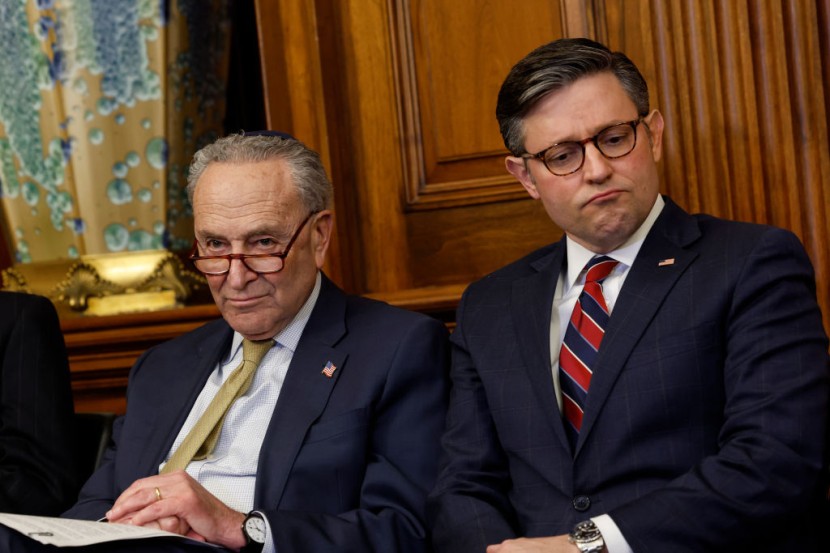The United States Congress has reached a bipartisan deal for 2024 spending that comes as the government shutdown deadline is quickly approaching.
On Sunday, House Speaker Mike Johnson and Senate Majority Leader Chuck Schumer announced the bipartisan deal. However, while the agreement on a "topline" spending level breaks a logjam that had stalled the process, it does not directly remove the shutdown threat.
Bipartisan 2024 Spending Bill

This is because the first of two deadlines nears on Jan. 19, which would be when some parts of the government will run out of funding. In a joint statement, Schumer and House Minority Leader Hakeem Jeffries said that the bipartisan topline appropriations agreement "clears the way for Congress to act."
The two New York Democrats said that Congress would be able to maintain important funding priorities for the American people and also avoid a government shutdown. The bipartisan deal would establish an overall spending level of $1.59 trillion in the 2024 fiscal year.
It would reflect the bipartisan budget deal that was struck last year by United States President Joe Biden and then-Speaker Kevin McCarthy. Johnson said that the breakdown is $886 billion for the military and $704 billion for non-defense spending, as per NBC News.
The House speaker added that there would be "key modifications" to the new agreement in order to reduce non-military spending with a $16 billion "offset." This would include $6.1 billion in unused COVID funds and $10 billion in IRS money under the Inflation Reduction Act.
In his letter to colleagues, Johnson said that while the final spending levels will most likely not satisfy everyone, they do not cut as much spending as many of them would like. He added that the bipartisan deal does provide lawmakers a path to move the process forward, reprioritize funding, and fight for important policy riders.
Additionally, a senior Democratic aide said that the Biden-McCarthy deal included $20.2 billion in IRS cuts spread over two years. On the other hand, the new deal with Johnson just means that the cuts would happen over one year instead.
Averting a Government Shutdown
The new deal comes as funding for federal transportation programs, housing, and food plans as well as other resources are set to expire on Jan. 19. On the other hand, the deadline for the Departments of Health and Human Services, Commerce, Labor, State, and Defense comes two weeks later on Feb. 2, according to USA Today.
If a government shutdown were to happen, all officials and federal agencies that are not deemed "essential" would have to stop their work. This means that thousands of federal employees will be furloughed.
The House speaker passed the latest funding extension to avoid such a shutdown in November with more Democratic votes than Republican ones. He is now facing the possibility of conservative rebels in the House who are seeking additional cuts before giving their support.
House of Representatives and Senate appropriations committees had been unable to agree on the 12 annual bills that are needed to fund the government. When lawmakers get back to work on Monday after a holiday break, those panels will launch intensive negotiations over how much various agencies get to spend in the fiscal year through Sept. 30, said Reuters.
Related Article:
Republican Elise Stefanik Remains Vague on Certifying 2024 Election Results








